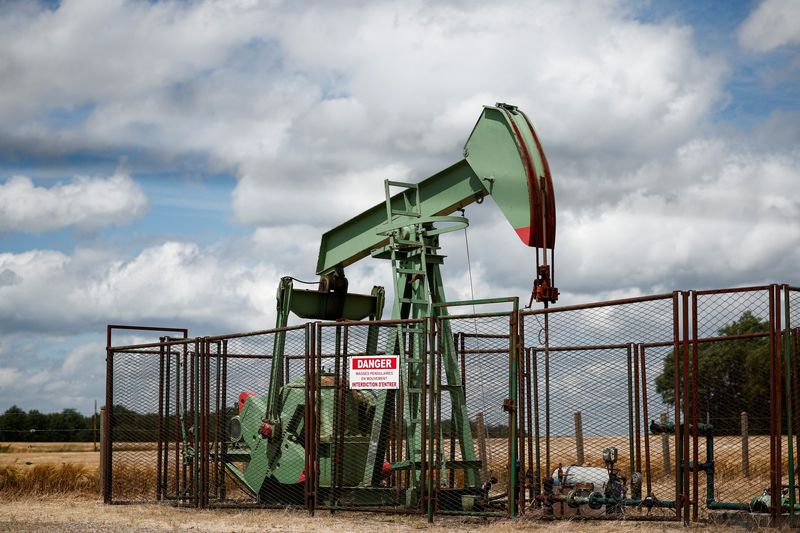Oil falls over 2% as China demand woes erase last week's gains
By Arunima Kumar
LONDON (Reuters) -Oil prices declined over 2% on Monday, wiping out all of last week's gains, as China's stimulus plans failed to inspire investor confidence and the country's oil imports fell for the fifth month, stoking concern about fuel demand.
The markets also remained on edge about potential Israeli attacks on Iranian oil infrastructure.
Brent crude futures were down $1.84, or 2.3%, at $77.20 per barrel by 1100 GMT, while U.S. West Texas Intermediate crude futures fell $1.87, or 2.47%, to $73.69 per barrel. Brent gained 99 cents last week, while WTI climbed $1.18.
China's deflationary pressures worsened in September, according to official data released on Saturday. A press conference the same day left investors guessing about the overall size of a stimulus package to revive the fortunes of the world's second-largest economy.
"China's monetary stimulus measures failed to stimulate and the weekend's pledge from the finance ministry to borrow more was long on cliches and phrases but short on reassuring and convincing details," said Tamas Varga of oil brokerage PVM.
"Deflationary pressure on producer prices remained entrenched in September amidst lax consumer demand."
China's consumer price index missed expectations last month, while the producer price index fell at the fastest pace in six months, down 2.8% year-on-year, according to the National Bureau of Statistics.
China's oil imports also fell in September by 0.6% from a year earlier, data showed on Monday, as plants curbed purchases because of weak domestic fuel demand and narrowing export margins.
The negative news from China outweighed market concerns over the lingering possibility that an Israeli response to Iran's Oct. 1 missile attack could disrupt oil production.
The U.S. said on Sunday it will send troops to Israel along with an advanced anti-missile system in a highly unusual deployment meant to bolster the country's air defenses.
"General feeling is that markets are treading water ahead of the Israeli response to Iran, with no real direction for prices until the situation in the Middle East is clearer," said Panmure Liberum analyst Ashley Kelty.
The U.S. has been privately urging Israel to calibrate its response to avoid triggering a broader war in the Middle East, officials say, with President Joe Biden publicly voicing his opposition to an Israeli attack on Iran's nuclear sites and his concerns about a strike on Iran's energy infrastructure.
Source: Investing.com
